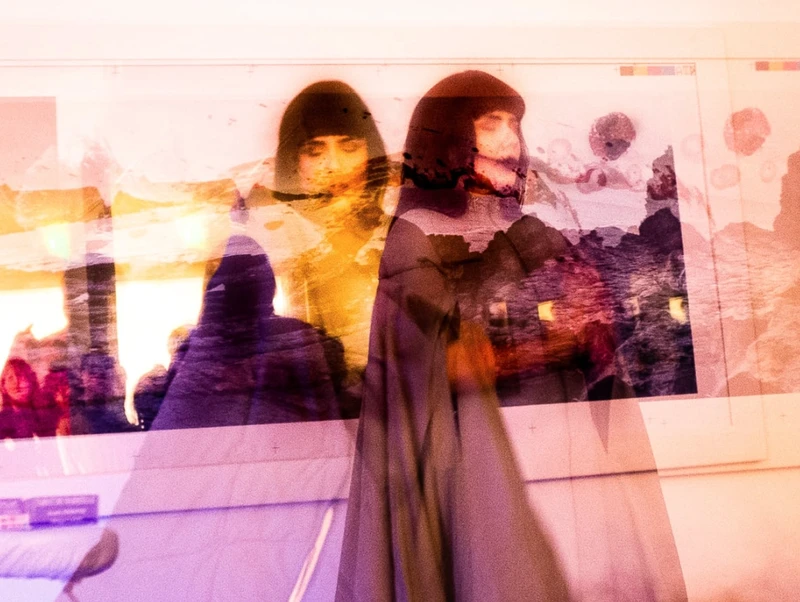Laima Leyton


b. 1977, Brazil
London based artist and musician Laima Leyton Rooted in the São Paulo contemporary art scene, Laima's credentials in the world of music are firmly established as one-half of Mixhell alongside her husband Iggor Cavalera (Sepultura, Cavalera Conspiracy) and for her work with Soulwax. With her debut album 'Home' released in 2019 via DEEWEE and The Vinyl Factory, the producer, musician, activist, artist, mother and teacher united her multifaceted talents. 'Home' explored the tension between the dual drivers of Leyton's life: domesticity and creativity. Inspired by Alejandro Jodorowsky, Bill Viola and Laurie Anderson, Laima's recordings expressed her daily routine: "It's almost like a family photo album in another format," says the artist. Rather than stage the live show in the usual performance spaces she decided to manifest the theme and intimacy of the record by bringing it directly into people's homes. The Guardian heralded this as "Domestic Disco". One performance happened at the home of art journalist and writer, Hettie Judah, who introduced her to Richard Saltoun, which led to a year long invitation at the gallery to compose a response to 'On Hannah Arendt: Eight Proposals for Exhibition', and for each of the eight chapters of Arendt's book, 'Between Past and Future: Eight Exercises in Political Thought'. Titled collectively as Infinite Past, Infinite Future and Now, the works, each composed of a sonic piece and a video, engage with themes of time, culture, truth and spirituality.
Leyton was selected - with Lexy Morvaridi - as Participation Resident Artist at London's Gasworks Gallery, they together formed InnerSwell, an art duo incorporating sound, rooted in Pauline Olivero's pedagogy of 'Deep Listening'. She also took part in Cucosonic (an IPoW project) raising awareness about the biodiversity of the Colombian Rainforest, releasing an album that included musicians Onsulade, Brian Eno, and Martin Ware. With her work as a teacher and activist, Leyton works closely with In Place of War who empower people in places of conflict and crisis to make music, arts and culture as a form of survival. With Ipow she has taught music production in Uganda, Tanzania and Palestine and from there went on to help develop GRRRL with women from Ghana, Bangladesh, Brazil, Venezuela, Zimbabwe and the UK. Working with GRRRL changed Laima's perspective on women making music and made her notice that, until now, in her life, she had been surrounded by men in most of the music roles. The artist is an activist, an artist, a godmother of four and a proud mother of five, and she's always looking for ways to share music, art, performance, and to collaborate...especially with other Performothers.